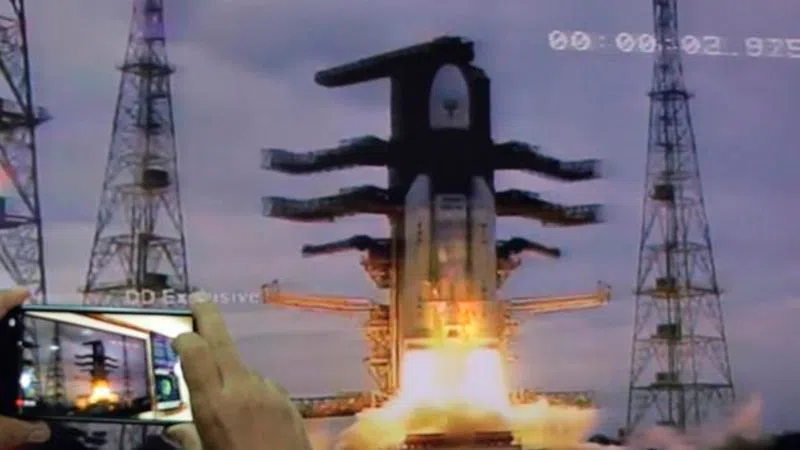
India launches spacecraft to explore water deposits on moon
NEW DELHI — India sent a spacecraft to explore water deposits on the far side of the moon in a successful launch Monday after a technical problem caused a week’s delay.
Scientists at the mission control centre burst into applause as the rocket lifted off in clear weather as scheduled at 2:43 p.m. from Sriharikota in southern India. K. Sivan, head of India’s space agency, said the rocket successfully injected the spacecraft into orbit.
The Chandrayaan, the Sanskrit word for “moon craft,” is scheduled to land on the lunar south pole in September and send a rover to explore water deposits confirmed by an earlier, orbiting mission. India would become only the fourth nation to land on the moon, following the U.S., Russia and China.
India’s first moon mission in 2008 helped confirm the presence of water. The country plans to send its first manned spaceflight by 2022.
